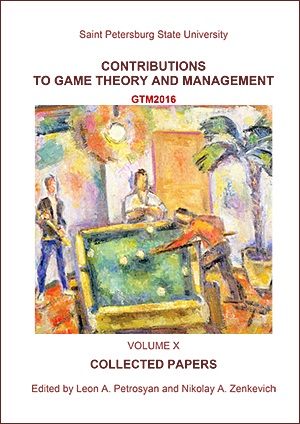Modelling of Information Spreading in the Population of Taxpayers: Evolutionary Approach
Abstract
Information technologies such as social networks and Internet allow to spread ideas, rumors, advertisements and information effectively and widely. Here we use this fact to describe two different approach of evaluation the impact of information on the members of tax system. We consider an impact of spreading information about future audits of the tax authorities in a population of taxpayers. It is assumed that all agents pay taxes, if they know that the probability of a tax audit is high. However some agents can hide their true income and then such behavior provokes the tax audit. Each agent adopts her behavior to the received information of future audits, which depends on the behavior of other agents.
Firstly, we model a process of propagation information as an epidemic process and combine it with game between tax authority and taxpayers. Secondly, we consider evolutionary game on network which define structured population of taxpayers and evaluate the impact of the spreading of information on the changes of population states over the time.
We formulate mathematical models, analyze the behavior of agents and corroborate all results with numerical simulations.
Keywords:
tax audit, tax evasion, total tax revenue, information spreading, evolutionary game on networks
Downloads
References
Downloads
Published
How to Cite
Issue
Section
License
Articles of "Contributions to Game Theory and Management" are open access distributed under the terms of the License Agreement with Saint Petersburg State University, which permits to the authors unrestricted distribution and self-archiving free of charge.




